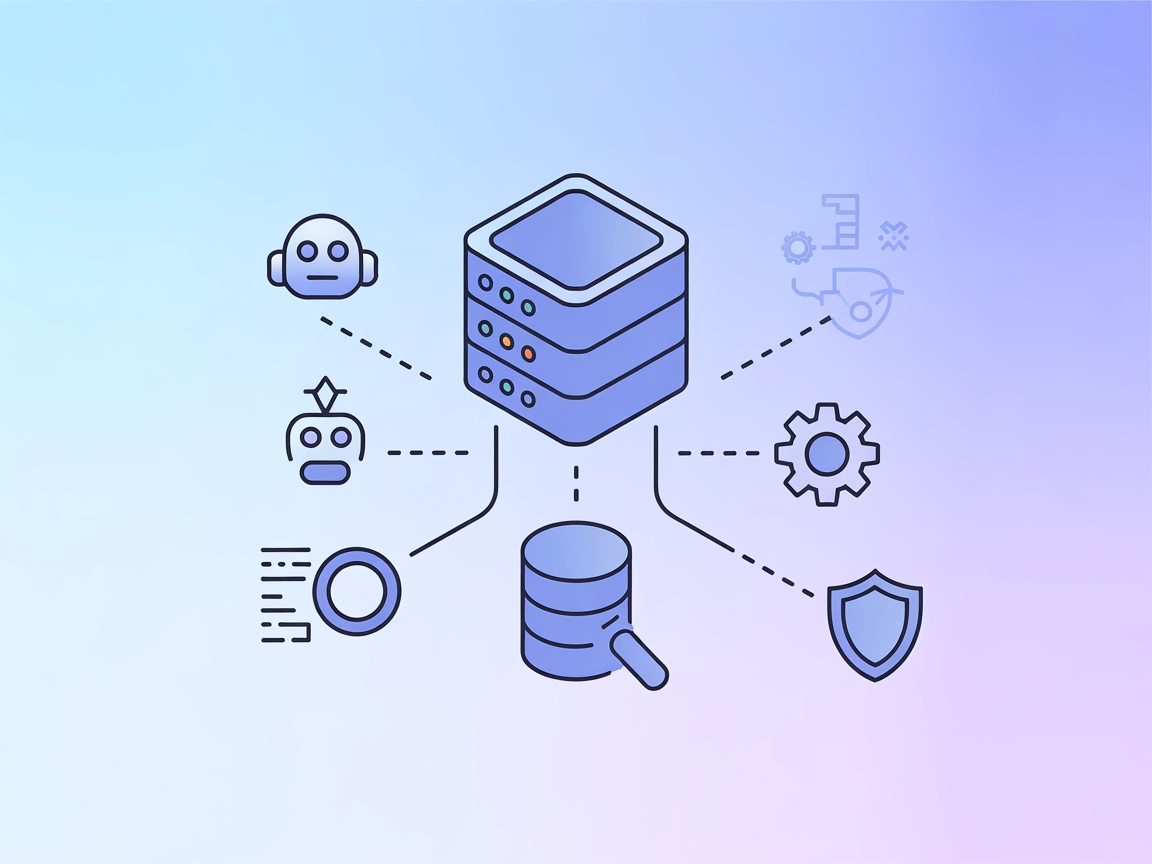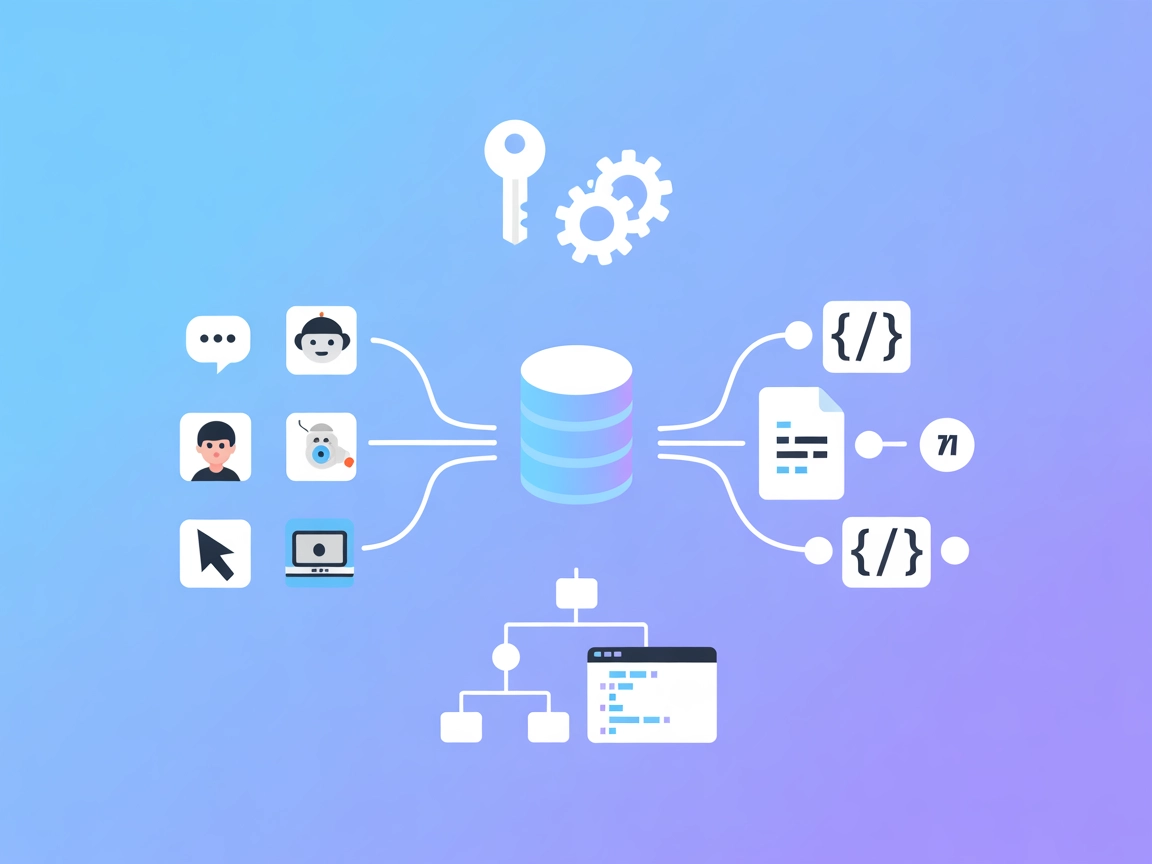
OpenSearch MCP Server Integration
The OpenSearch MCP Server enables seamless integration of OpenSearch with FlowHunt and other AI agents, allowing programmatic access to search, analytics, and c...

Connect your AI tools to Open Library’s vast book and author database with the MCP Open Library server. Search, retrieve, and enrich bibliographic data programmatically—no manual API handling needed.
FlowHunt provides an additional security layer between your internal systems and AI tools, giving you granular control over which tools are accessible from your MCP servers. MCP servers hosted in our infrastructure can be seamlessly integrated with FlowHunt's chatbot as well as popular AI platforms like ChatGPT, Claude, and various AI editors.
MCP Open Library is a Model Context Protocol (MCP) server that connects AI assistants with the Internet Archive’s Open Library API. Its primary function is to enable seamless interaction between AI clients and the vast database of books and authors managed by Open Library. By integrating this MCP server, AI tools can search for books by title, query author information, retrieve detailed metadata, and access media like book covers and author photos. This streamlines workflows for developers and assistants working with bibliographic data, supports research and discovery tasks, and allows for programmatic access to structured book and author data without manual API management.
No explicit prompt templates are mentioned in the repository or documentation.
No explicit MCP resources are specified in the available documentation or code.
mcpServers configuration:{
"mcpServers": {
"open-library": {
"command": "npx",
"args": ["@8enSmith/mcp-open-library@latest"]
}
}
}
npx -y @smithery/cli install @8enSmith/mcp-open-library --client claude
@8enSmith/mcp-open-library appears in your Claude MCP configuration.{
"mcpServers": {
"open-library": {
"command": "npx",
"args": ["@8enSmith/mcp-open-library@latest"]
}
}
}
{
"mcpServers": {
"open-library": {
"command": "npx",
"args": ["@8enSmith/mcp-open-library@latest"]
}
}
}
{
"mcpServers": {
"open-library": {
"command": "npx",
"args": ["@8enSmith/mcp-open-library@latest"]
}
}
}
If API keys are required, secure them via environment variables. Example:
{
"mcpServers": {
"open-library": {
"command": "npx",
"args": ["@8enSmith/mcp-open-library@latest"],
"env": {
"OPEN_LIBRARY_API_KEY": "${OPEN_LIBRARY_API_KEY}"
},
"inputs": {
"apiKey": "${OPEN_LIBRARY_API_KEY}"
}
}
}
}
Using MCP in FlowHunt
To integrate MCP servers into your FlowHunt workflow, start by adding the MCP component to your flow and connecting it to your AI agent:

Click on the MCP component to open the configuration panel. In the system MCP configuration section, insert your MCP server details using this JSON format:
{
"open-library": {
"transport": "streamable_http",
"url": "https://yourmcpserver.example/pathtothemcp/url"
}
}
Once configured, the AI agent is now able to use this MCP as a tool with access to all its functions and capabilities. Remember to change “open-library” to whatever the actual name of your MCP server is and replace the URL with your own MCP server URL.
| Section | Availability | Details/Notes |
|---|---|---|
| Overview | ✅ | Describes AI assistant access to Open Library data |
| List of Prompts | ⛔ | No explicit prompt templates found |
| List of Resources | ⛔ | No explicit MCP resources specified |
| List of Tools | ✅ | 6 tools: book, author search, info/photo/cover retrieval |
| Securing API Keys | ✅ | Example for env/integration provided |
| Sampling Support (less important in evaluation) | ⛔ | Not mentioned |
MCP Open Library provides robust, well-documented tools for bibliographic and metadata queries, but lacks explicit prompt templates and MCP resources. Its setup is typical for MCP servers, and the public MIT license is a plus. Sampling and roots support are not mentioned. Overall, it’s a strong, focused MCP server for book and author data.
| Has a LICENSE | ✅ (MIT) |
|---|---|
| Has at least one tool | ✅ |
| Number of Forks | 3 |
| Number of Stars | 6 |
MCP Score: 7/10.
Great for book/author search and metadata, but missing advanced MCP features and resource/prompt specification.
MCP Open Library is an MCP server that connects AI assistants with the Internet Archive’s Open Library API, enabling search and retrieval of book, author, and media data for bibliographic and research applications.
It provides tools to search for books by title, find authors by name, get detailed author or book info, and retrieve media like book covers or author photos.
Use cases include book information lookup, author discovery, enriched metadata retrieval for cataloging or literary analysis, and adding book covers or author photos to digital platforms.
Generally, Open Library is a public API, but if keys are needed, you can secure them via environment variables in your MCP server configuration.
It has a MCP score of 7/10: robust for book and author queries, but lacks explicit prompt templates and advanced MCP resource features.
Add the MCP server details in your flow’s MCP component using the provided JSON config. Connect it to your AI agent to enable bibliographic search tools within your flows.
Empower your AI workflows with instant access to millions of books and authors. Discover, enrich, and automate bibliographic data queries effortlessly.

The OpenSearch MCP Server enables seamless integration of OpenSearch with FlowHunt and other AI agents, allowing programmatic access to search, analytics, and c...

The OpenAPI MCP Server connects AI assistants with the ability to explore and understand OpenAPI specifications, offering detailed API context, summaries, and e...

The Apple Books MCP Server connects AI assistants with the Apple Books ecosystem, exposing books, collections, annotations, and highlights as structured resourc...
Cookie Consent
We use cookies to enhance your browsing experience and analyze our traffic. See our privacy policy.